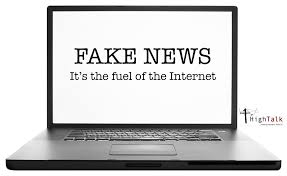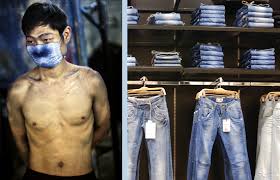板橋區文化路一段421巷11弄1號 (陽光甜味咖啡館)
新埔捷運站1號出口 旁邊7-11巷子進入20公尺 看到夏朵美髮
左轉 聚會時間下午4:00pm--6:00pm
 假新聞衝擊
假新聞衝擊
China is calling for stricter restrictions on the internet in the wake of terrorism and the increasing circulation of fake news stories on social media sites, which allegedly played a role in helping Republican Donald Trump win the presidential election in the U.S.
China’s vision of a more secure cyberspace with rigid censorship comes at a time when the West is debating on the fake news surge and if smartphone companies should cooperate with federal agents to help them gain access to private information in phones belonging to suspected criminals.
At the third World Internet Conference held in Wuzhen last week, Chinese officials and business heads called for more regulations on China’s already highly censored internet. They also urged the formation and implementation of international internet rules.
“The booming scale of the internet means harmful information such as online pornography, intimidation and fraud are more common than ever,” Cyberspace Administration of China Deputy Minister Ren Xianliang said at the conference which ended Friday.
President Xi Jinping said via a video speech that China will “work with the international community to ensure the common well-being of humanity, uphold cyber sovereignty, promote more fair and equitable global Internet governance and bring about an open, inclusive and secure cyberspace that features equality, mutual respect, innovation and orderly development.”
China has nearly 710 million internet users of which 75 percent are 10 to 39 years old. Ma Huateng, chairman and chief executive of Tencent Holdings, which owns China’s popular instant messaging app WeChat, spoke of the need to curb fake news stories on the internet.
WeChat, which has nearly 700 million active users as of last year, handled 17 million complaints so far in 2016 with people reporting the spread of “illicit information," Ma said.
“In the past two or three years, many children and seniors have become our users. Sometimes they lack the acumen to discern true or false. Hence, we’ll do more to ensure security and social stability,” he added. “Tencent has always been strict in cracking down on fake news and we see it as very necessary.”
China, earlier in November, passed a new cybersecurity law tightening its control over the internet, which experts said may technologically isolate the country from the rest of the world. The law, which will come into force during summer next year, seeks to ensure a balance between privacy and security.
“The already heavily censored internet in China needs more freedom, not less,” Human Rights Watch’s China Director Sophie Richardson said in a statement. “Despite widespread international concern from corporations and rights advocates for more than a year, Chinese authorities pressed ahead with this restrictive law without making meaningful changes.”

時尚陷阱
By Rebecca Ley for the Daily Mail
As she opened the packet of new T-shirts she had bought from a well-known High Street chain, Merlene Paul hoped that, just for once, she would be able to indulge her former love of clothes.
But within seconds she was overwhelmed by familiar sensations. ‘My throat closed up, my eyes started to sting and a sharp, acrid smell made my nose prickle,’ says the retired 63-year-old. ‘I knew I had to get away from the T-shirts quickly, or I’d have a full-blown reaction.’
The culprit? Formaldehyde. It is most commonly associated with preserving corpses, but, alarmingly, many big clothing chains also use it to give their wares a fresh, unwrinkled appearance and prevent mildew during shipping.
Forced to quit two jobs: Samantha Devlin suffers from 'POTS' (Postural Orthostatic Tachycardia Syndrome) which makes her allergic to toxic chemicals
Not that you’d necessarily know. The manufacturers of clothes sold in the UK are not required to disclose the use of the chemical on labels. And despite tests in New Zealand that discovered formaldehyde levels in some Chinese clothes exports up to 900 times higher than the prescribed safety limit, no testing has been done on similar clothes sold in Britain.
Yet formaldehyde, a highly toxic, colourless gas, has been linked to skin irritation and allergic reactions. Even more worryingly, the chemical is classified as a human carcinogen by the International Agency for Research on Cancer.
And according to Merlene, from Hungerford, Berkshire, it’s ubiquitous: ‘It’s in mattresses, bedding, carpeting, furniture and in most of the clothes that we buy. Department stores smell pungently of it. And washing clothes before you wear them isn’t always enough to get rid of it.’
She first experienced a problem 20 years ago when she was working in the interior design industry, spending hours each day in a workshop where rolls of fabric were being stored.
時裝是生活中絢爛的一部分,消費者在選購時首重樣式和質料,但是衣服和鞋子製作過程中使用許多有毒物質,讓我們在不知不覺中被有毒物質環繞。
迫於全球化競爭、價格壓力和時裝業僥倖心態,大型服裝連鎖在中國印度和孟加拉都有設廠,低廉的人工和鬆散的環保規範成為這些地區吸引廠商的特點,但是受影響的不只是當地的工人,接觸到的消費者也受到毒物汙染。
服裝中的毒物是一般消費者尚未意識到的一環,【時尚陷阱】將深入追蹤這些有毒物質,防腐防霉劑、鉻、偶氮染料和氯氣都是美國及歐盟明文禁止的使用,但在這些地區卻是隨處可見,即使是有機材質也難免於有毒染劑,也常常是基因改造的棉花製成。
時尚陷阱


















0 意見:
張貼留言